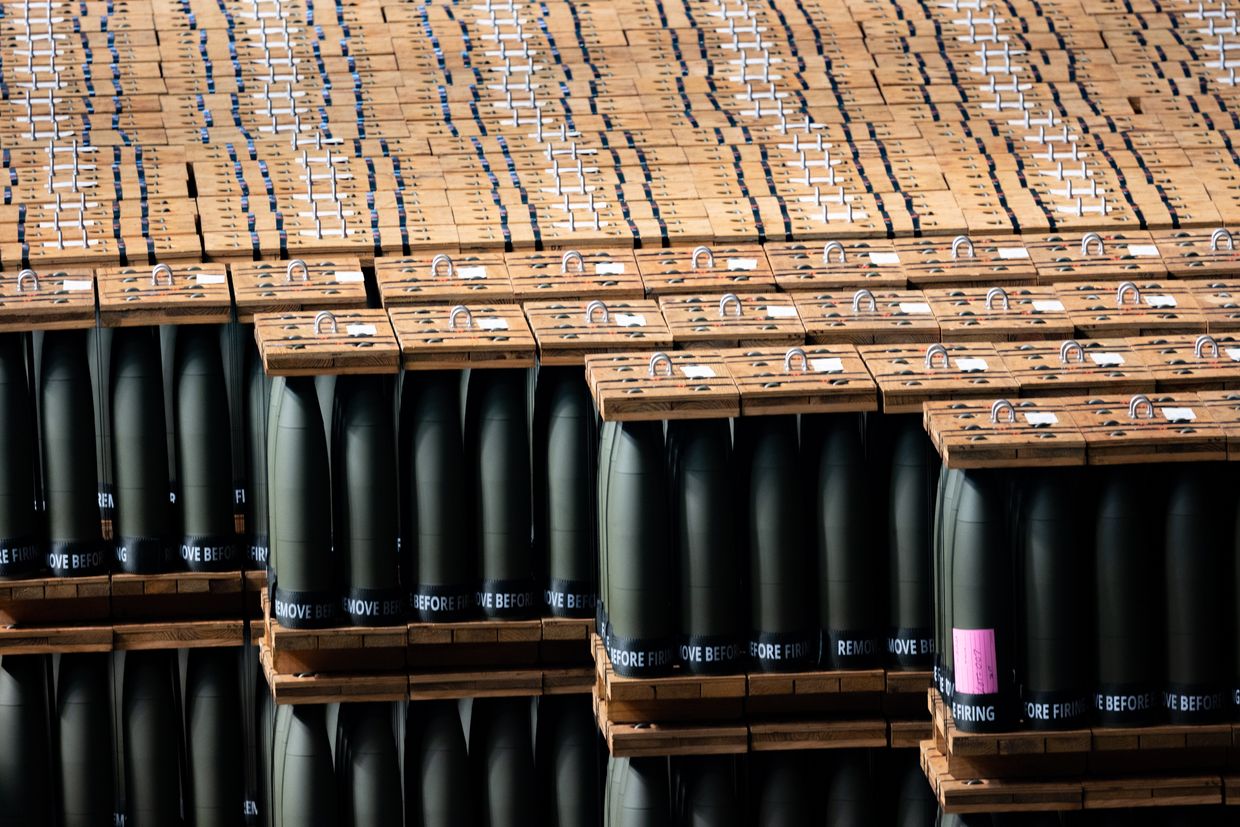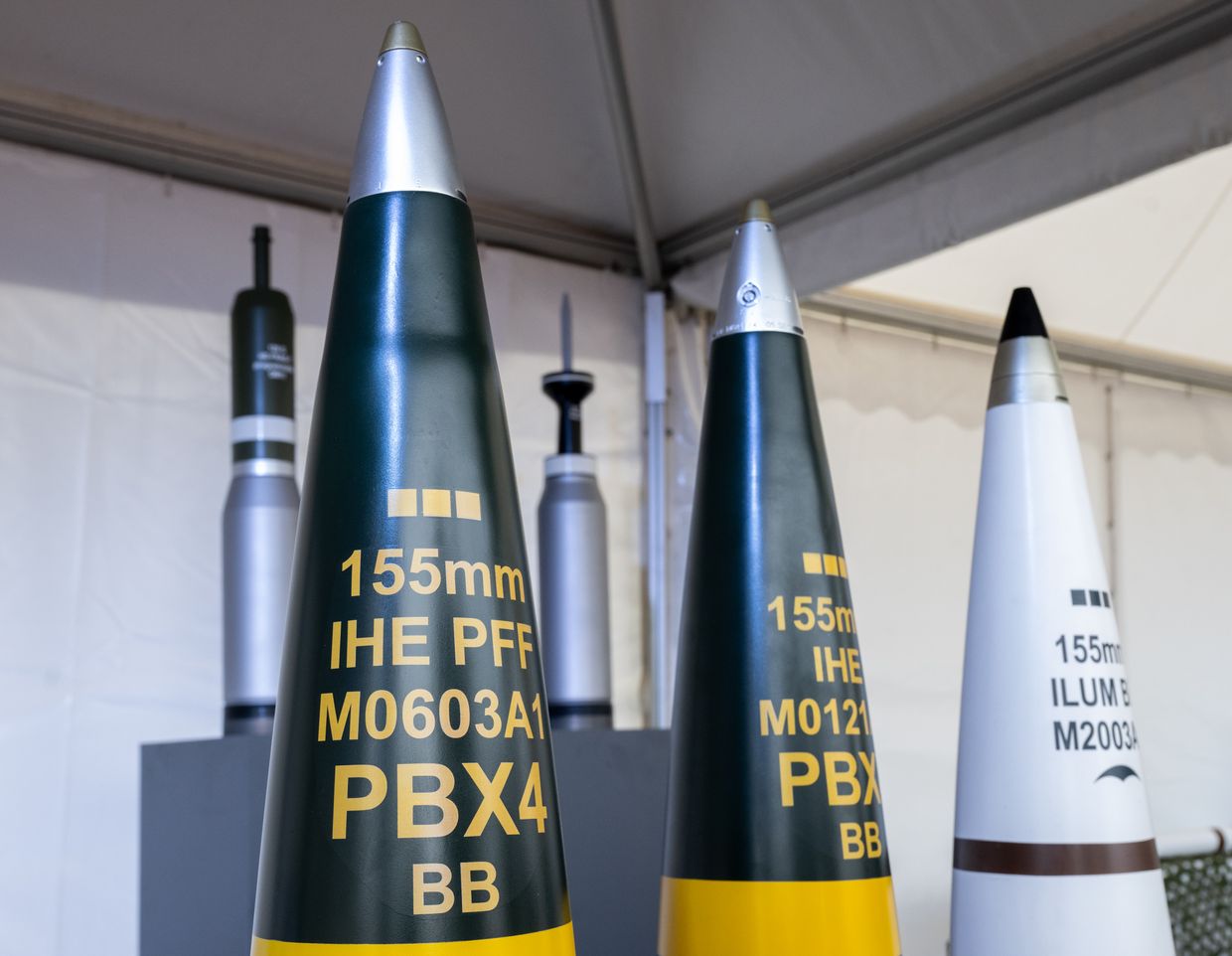Czech FM: Ammunition initiative is a vital part of Ukraine's defense but needs more donors, money

Czech Foreign Minister Jan Lipavsky talks to the media at the end of an EU Foreign Affairs Ministers meeting in the Europa building, the EU Council headquarter on March 18, 2024 in Brussels, Belgium. (Thierry Monasse/Getty Images)
The Czech ammunition initiative secured financing for half a million shells for Ukraine and can gather more if it finds additional donors or finances, Czech Foreign Minister Jan Lipavsky said in an interview with the Kyiv Independent on July 23.
Czechia unveiled the international initiative earlier this year amid Ukraine's shell shortages caused largely by delays in U.S. assistance.
“We know for sure that half a million shells will be delivered by the end of this year. If there is more funding, more can be delivered,” Lipavsky said, adding that “there are quite a significant number of shells available on the market” without giving specific numbers.
Speaking in Brussels earlier this week, Lipavsky confirmed that the first batch of 45,000 shells arrived in Ukraine in June, and 100,000 more are expected to arrive by the end of summer.
The minister told the Kyiv Independent that Prague aims to continue with the initiative also next year but needs more donors or more financial contributions. Eighteen countries have pledged support so far, of which 15 delivered on their promise, Lipavsky said.

Commenting on the reception on the Ukrainian side, Czechia’s chief diplomat said that the “Czech ammunition initiative really consists of a significant piece of Ukrainian defense. The Ukrainian leadership was very thankful.”
Lipavsky did not reveal if Russia attempted to disrupt the initiative, but reminded that Russian operatives are active across Europe, as evidenced by the 2014 ammunition depot blasts allegedly orchestrated by Russian GRU agents.
Czechia’s support for Ukraine went beyond the artillery ammunition. The country was the first one to provide main battle tanks to Ukraine, in addition to helicopters, multiple rocket launchers, armored vehicles, and more.
The Czech Defense Ministry said already last fall that the Soviet-era supplies the NATO country can send to Ukraine are running thin, however.
Lipavsky confirmed that his nation’s military needs to maintain some strategic reserves of Soviet-era weaponry before it can replace it with modern arms.
The Czech foreign minister reiterated his country’s support for Ukraine’s right to strike deep inside Russia with Western weapons, but refrained from criticizing partners like the U.S. who have not given such a permission.
“I think it's more important that we work in unity rather than challenge specific countries with specific positions,” Lipavsky said, adding that the allies need a “common strategy to contain Russia.”
The U.S. and Germany permitted Ukraine to only use their weapons to attack Russian forces within Ukraine and just across the border to disrupt offensive operations. President Volodymyr Zelensky has repeatedly appealed to the U.S. and other allies to lift these restrictions.

London and Kyiv are leading talks on the possible use of Storm Shadow long-range missiles against targets inside Russia but no definitive decision has been made so far.
During the interview, Lipavsky also commented on Hungarian Prime Minister Viktor Orban’s so-called “peace mission” to Kyiv, Moscow, and Beijing. The venture has been extensively criticized by the EU, namely due to the fact it took place during Hungary’s rotating presidency of the Council of the EU.
Lipavsky said that other member states made it clear that Orban’s “rogue diplomacy” does not represent the bloc, but did not elaborate on any concrete steps Brussels or member states plan to take in response.
Brussels’ reaction has so far consisted mainly of boycotting events organized within the framework of the rotating presidency.
Hungary is broadly seen as the most Kremlin-proximate country within the EU and continues blocking around $7 billion in funds allocated to Ukraine defense support. According to Lipavsky, there is little the EU can do to thwart Budapest’s obstructions.
“What we do is that we carefully go through every policy to get Hungary on board when we need a full agreement in the EU,” the minister said.
The interview was facilitated with the assistance of the Kyiv Independent's partners at KI Insights.
Hi, this is Martin Fornusek. I hope you enjoyed the article.
Our team strives every day to bring you in-depth insights into Ukraine's resistance against Russian aggression and the countries around the world that support the country in its struggle.
But we wouldn't be able to do so without the support of readers like you. Please consider supporting us to help us continue this work.
Thank you very much.











